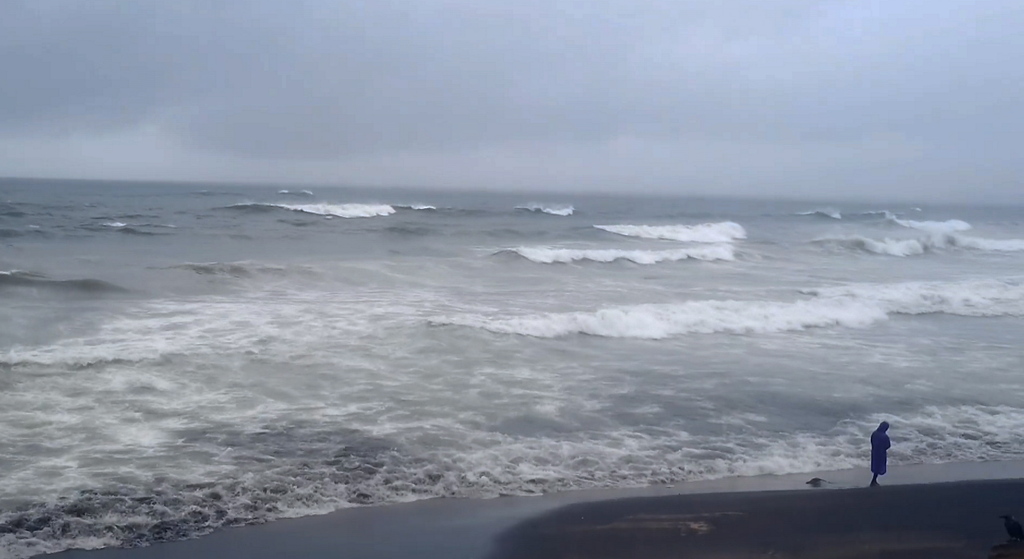In Photos | Cyclone Montha: How to stay safe during a storm
Cyclone Montha is set to make landfall near the coast of Andhra Pradesh today (October 28). A red alert has been issued for the state along with Odisha and Telangana. Here are some dos and don’ts to keep in mind as the storm nears
)
Cyclone Montha has intensified into a severe storm and is moving toward Andhra Pradesh. It is expected to make landfall near Kakinada between Machilipatnam and Kalingapatnam on Tuesday evening. Coastal districts of Andhra Pradesh, Odisha, Tamil Nadu, Chhattisgarh and Puducherry are on alert. If you are in areas affected by the storm, monitor weather updates via radio, television, or government apps and follow instructions from disaster management authorities. PTI
Keep essential items such as drinking water, non-perishable food, medicines, flashlights, batteries, important documents, and cash handy. Ensure your mobile phones and power banks are charged. A well-prepared emergency kit ensures you can survive comfortably and safely even if electricity or communication lines go down during the cyclone. Image courtesy: Pixabay
Reinforce windows, doors, and roofs. Bring lightweight items indoors and unplug electrical devices. Store valuables and documents in waterproof bags. These simple steps can prevent major losses from strong winds, heavy rain, and flooding while keeping both your family and property safer from damage. Image courtesy: Pixabay
If local authorities issue an evacuation order, move immediately to a designated shelter. Don’t delay or wait for the weather to worsen. Evacuating early helps you avoid the most dangerous conditions and ensures you reach safety in time. PTI
During cyclones, remain in a secure part of your home. Keep calm and wait for official confirmation that it’s safe to move out. The eye of the storm may bring temporary calm, but it can be followed by intense winds, so remain cautious throughout. PTI
After the storm, check on your neighbours, especially the elderly, children, and differently abled individuals. Offer food, shelter, or first aid if needed. Staying connected builds community resilience and ensures quicker recovery for everyone affected by the cyclone’s destruction. AP
Avoid stepping outside to film or witness the storm as strong winds, flying debris, and collapsing structures pose life-threatening risks. Many injuries occur because people underestimate cyclone strength. Stay sheltered until authorities clearly announce that danger has passed and the situation is fully under control. PTI
After a cyclone, avoid walking through floodwater or touching damaged electrical poles, wires, or appliances. Downed power lines can be deadly. Report any hazards immediately to the local power department or disaster response teams to prevent further accidents or electrocution. PTI
In times of crisis, misinformation can confuse. Share only verified updates from government agencies or trusted news outlets. Avoid spreading unconfirmed reports on social media. PTI
Floods can pollute drinking water. Boil water before use, and eat only sealed or cooked food. Avoid wading through stagnant water to prevent infections. Taking simple health precautions after a cyclone can prevent outbreaks. Image courtesy: Pixabay